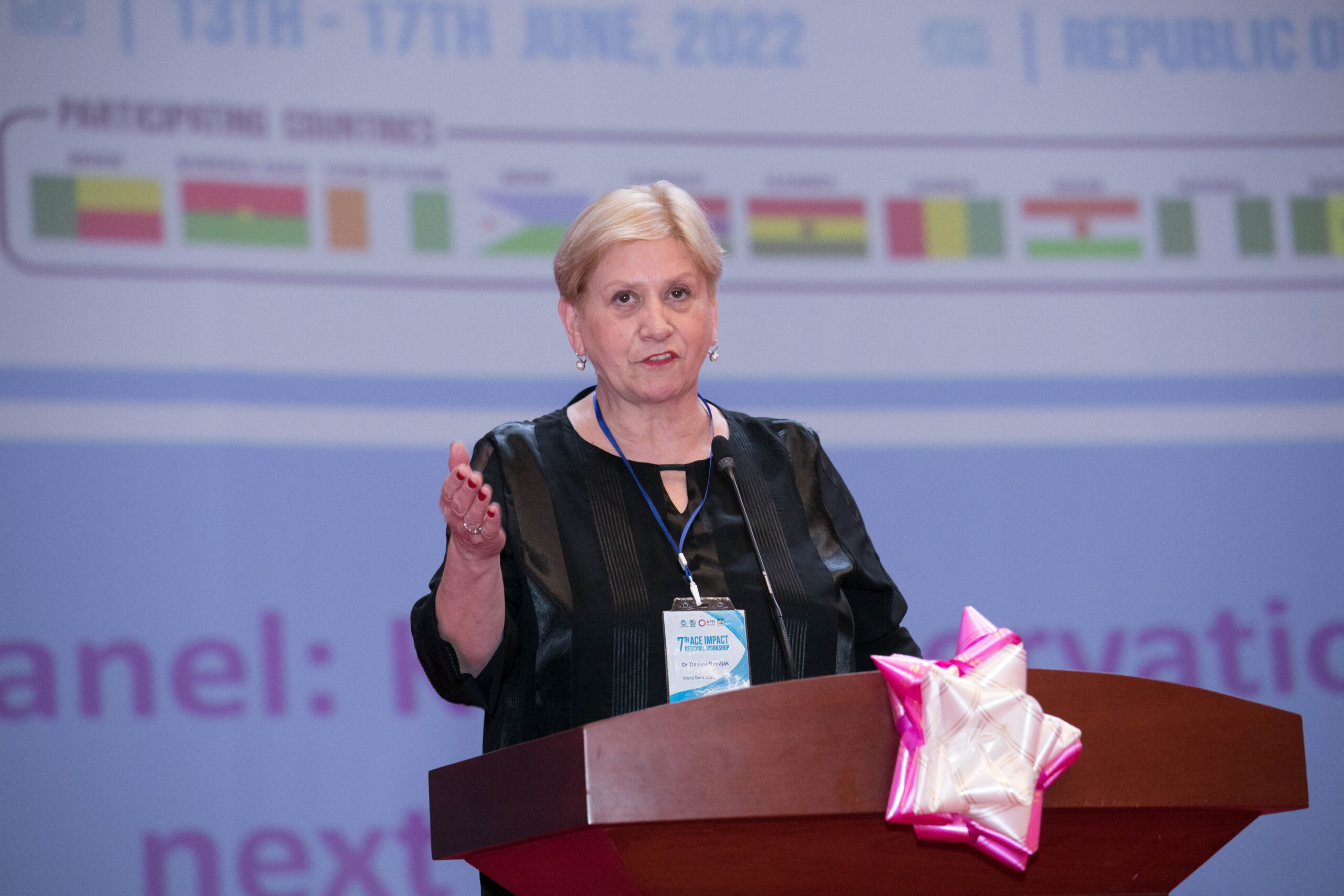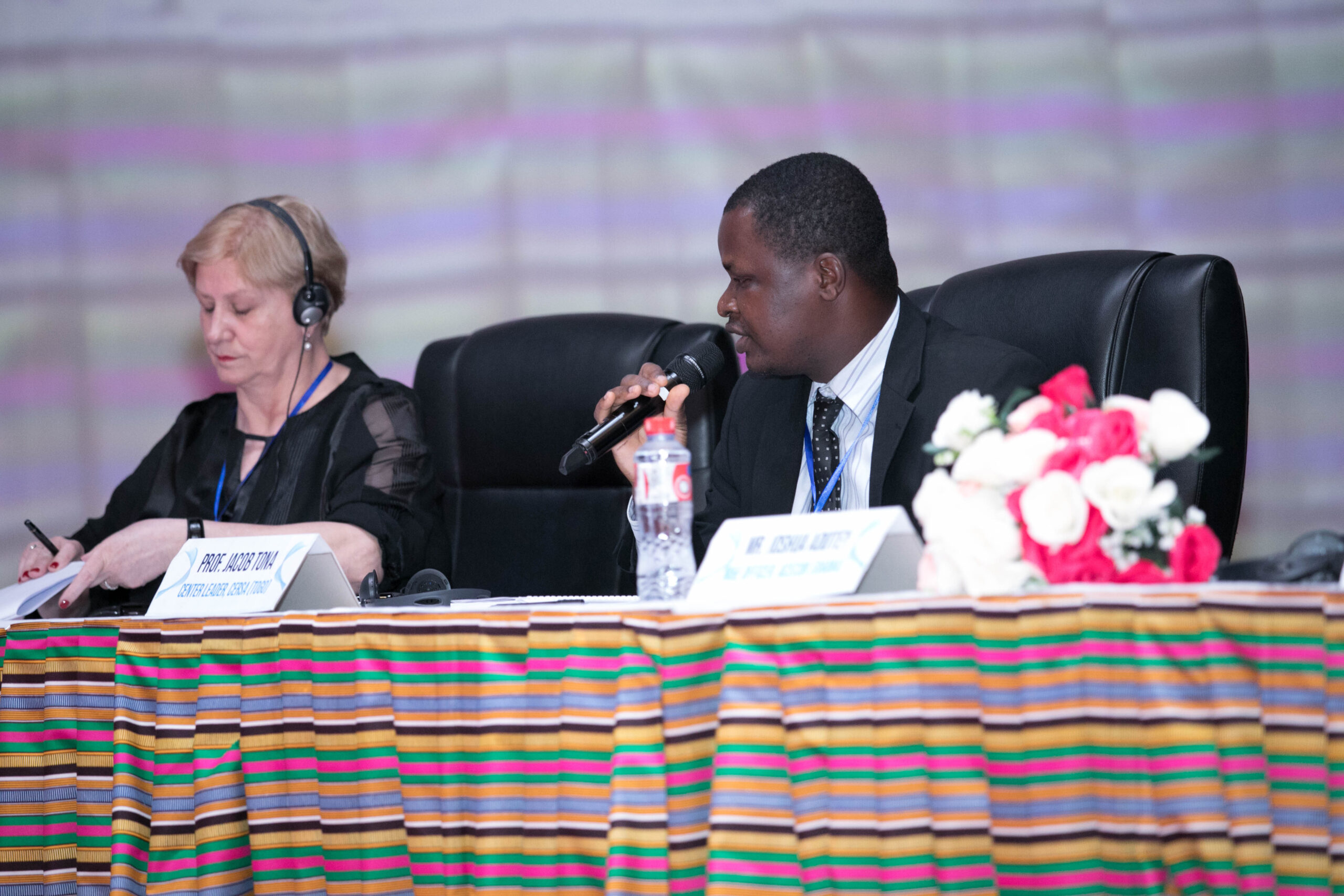Pushing the Frontiers of Innovation and Entrepreneurship in Africa’s Higher Education Eco-System
Globalization and internationalization, amongst other factors, have modified the role African universities play in society. Universities are now expected to be highly innovative and entrepreneurial; commercializing their research outcomes and spinning-out new knowledge-based enterprises, collaborating closely with the private sector, and offering advisory services, among a host of other key actions. The reduction in countries public funds, coupled with the lean government budgets for higher education, demand that higher education innovate and generates external funding to supplement its budget and facilitate meeting overall goals.
In response to this need, the ACE Impact project is strengthening innovation and entrepreneurship activities in 35 participating universities, while actively contributing to the creation of a pool of highly innovative universities, a crucial group needed to champion Africa’s economic transformation agenda. Since its inception in 2019, the project has supported the 53 ACE Impact centres to develop robust implementation plans in three core areas – 1) strengthening of technology transfer 2) development of institutional innovation and entrepreneurship ecosystem and 3) innovation-oriented cooperation of research infrastructures. The prioritization of these key areas is congruous with the Disbursement Linked Indicator 5.3 (DLI 5.3), included in the project to track the successes and results of participating centres in meeting pre-agreed milestones under the critical themes of innovation and entrepreneurship.
Under this DLI (DLI 5.3), the project, working alongside experts, supported the centres to develop plans and implement activities related to innovation and entrepreneurship. A thorough review process of centres implementation plans revealed they were at different levels in terms of their institutional innovation ecosystem. centres were advised and empowered to measure their technological institutional readiness for innovation and entrepreneurship. The centres have been equipped with the requisite tools and information to facilitate the engagement of authorities in their institutions and at the country levels to prioritize innovation.
The senior consultant and expert in entrepreneurship and innovation at the World Bank, Dr. Danica Ramljakan, provided very pertinent feedback to the centres following the review process, including the recommendation that the centres need to have appropriate Science Technology Innovation (STI) policies in place and ensure its effective implementation. Centres were charged by her to ensure that institutional capacity building for STI management and governance were in place, in addition to establishing efficient models for knowledge transfer to prioritize capacity building.
The ACE Impact project also charged the centres to define their research and development priorities, develop a roadmap for research infrastructure, and provide sustainable support for innovation development. Equally important to fostering innovation and entrepreneurial activities were the recommendations to attract the private sector to collaborate and invest in higher education Institutions’’ research and development (R&D), strengthen international collaborations, and inform the general public about the importance of the Centres’ work.
Centres have already begun to implement key interventions and have recorded significant improvements.
The Centre of Excellence for Food Technology and Research (CEFTER) at the Benue State University, Nigeria, for instance, has established a new Technology Transfer Office (TTO) and appointed a Technology Transfer Officer, as part of its intervention to strengthen the management of innovation and promote entrepreneurship/commercialisation. CEFTER has also instituted a startup grant scheme, to accelerate good business ideas and drive innovation forward. Already, 10 startups with commercialisable ideas have been selected to benefit from this scheme, following a competitive process involving 1,080 applicants. They are set to undergo a three (3) months incubation (booth camp) during which they will interact with experts in different fields for technical support, as well as undergo training on important subjects, including market research, product development, testing and validation, financial modelling, innovator business branding among others.
The ICT-Driven Knowledge Park (OAK-PARK) at the Obafemi Awolowo University, Nigeria developed a non-credit unit course ETR 700 (Engineering Entrepreneurship Process) and offered this course to its postgraduate students, dentistry students and faculty members of the Centre. The centre’s recently established Incubation Centre and ICT Garden were commissioned in December 2022 by Nigeria’s Minister of Communications and Digital Economy, Professor Isa Ali Ibrahim, who also gave a lecture on the topic ‘Research, Innovation and Sustainable Development’, as part of a lecture and commissioning event organised by the centre to bring its stakeholders together to engage with the topic of innovation.
Centres under the ACE Impact project have also been creating important platforms to engage key stakeholders from industry, government and the general public through the organisation of innovation weeks and research fares. In November, 2022, CEFTER hosted the West and Central Africa Post Harvest Congress and exhibition in Abuja, where most of its innovations were exhibited and in February 2023, it hosted its annual food week (innovation week) during which Masters and PhD students showcased different food processing and packaging technologies they had innovated. The Centre Leader, Dr Barnabas Ikyo, concludes that the project has positively impacted the University in various areas, citing an example that its company – CEFTER Foods Nigeria Ltd, established in line with the centre’s entrepreneurial activities, produces water, cassava-based cookies and bread in commercial quantities to serve both the university and external community members. He adds that as result of ongoing research by the Centre, the State Government released seventy (70) hectares of land to the university to build a College of agriculture, cultivate model farms and to carry out other innovative research activities.
Memorandum of Understanding (MoUs) to support entrepreneurship and innovation, and commercialization of research have also been entered into by some centre’s of excellence and various strategic partners to facilitate implementation and engagement on various fronts.
Looking ahead, the Centres of Excellence are optimistic about pushing the frontiers of innovation and entrepreneurship in Africa’s higher education eco-system and deepening their engagement and impact in this topical focus area. From viable businesses, the take-off of spin off companies, the registration of patents, introduction of resourceful products and technologies, and strengthening of appropriate systems, partnerships and the entire innovation eco-system, the Centres current efforts are soon to reach maturity for Africa’s benefit.



